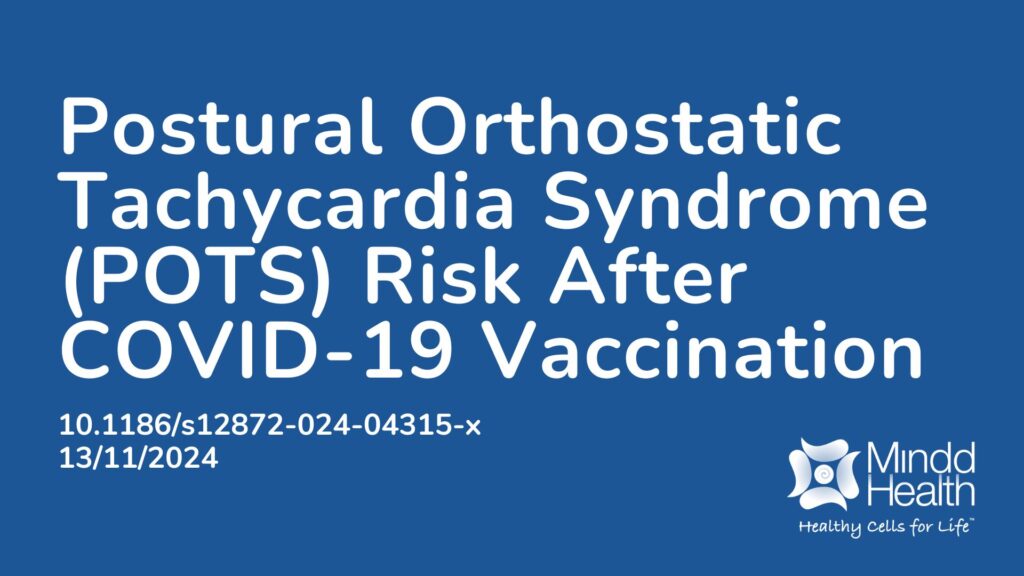Summary:
COVID-19 vaccines have been widely administered to reduce severe illness and death. By early 2024, over 70% of the world’s population had received at least one COVID-19 vaccine dose. Concerns have emerged about possible side effects, including Postural Orthostatic Tachycardia Syndrome (POTS), a condition marked by an abnormal heart rate increase upon standing, causing dizziness, fatigue, and palpitations. POTS can arise from various triggers like viral infections, autoimmune reactions, and sometimes vaccinations. While autonomic nervous system problems after vaccination are not new, the rapid COVID-19 vaccine rollout has brought more attention to these events. The causes of POTS are complex, involving genetics, immune responses, and environmental factors, making it challenging to determine if cases following vaccination are coincidental or causal. This systematic review of studies up to June 2024 identified 10 relevant papers involving 284,678 participants. These included case reports, case series, and observational studies. One cohort study showed a small increase in new POTS diagnosis after vaccination, but a higher risk after COVID-19 infection. However, current studies have limitations such as small sample sizes and varying methods. More research is needed to better understand vaccine-associated POTS and improve clinical care.
Abstract:
Background: The global COVID-19 vaccination campaign, with 13.53 billion doses administered by early 2024, has significantly reduced severe illness and mortality. However, potential adverse effects, such as Postural Orthostatic Tachycardia Syndrome (POTS), have raised concerns. This systematic review evaluates the incidence, mechanisms, and clinical implications of POTS following COVID-19 vaccination. Methods: A systematic search of PubMed, EMBASE, and Web of Science was conducted up to June 7, 2024, following PRISMA guidelines to identify studies related to COVID-19 vaccines and POTS. Eligible studies included randomized controlled trials, cohort studies, cross-sectional studies, case-control studies, case series, and case reports. Screening, data extraction, and quality assessment were independently performed by two reviewers using the Joanna Briggs Institute Checklists and the Newcastle-Ottawa Scale. Results: Of the 1,531 articles identified, 10 met the inclusion criteria, encompassing a total of 284,678 participants. These studies included five case reports, two case series, one cross-sectional study, one prospective observational study, and one cohort study. The cohort study reported that the odds of new POTS diagnoses post-vaccination were 1.33 (95% CI: 1.25–1.41) compared to the 90 days prior. In contrast, the post-infection odds were 2.11 (95% CI: 1.70–2.63), and the risk of POTS was 5.35 times higher (95% CI: 5.05–5.68) post-infection compared to post-vaccination. Diagnostic findings across studies included elevated norepinephrine levels and reduced heart rate variability. Reported management strategies involved ivabradine, intravenous therapies, and lifestyle modifications. Conclusion: The risk of POTS following COVID-19 vaccination is lower than that observed post-SARS-CoV-2 infection; however, existing studies are limited by small sample sizes and methodological variability. Further research is needed to clarify the incidence, mechanisms, and long-term outcomes of vaccine-related POTS to inform effective clinical management strategies.
Article Publication Date: 13/11/2024
DOI: 10.1186/s12872-024-04315-x



